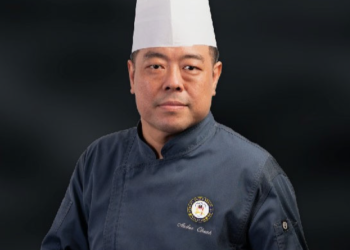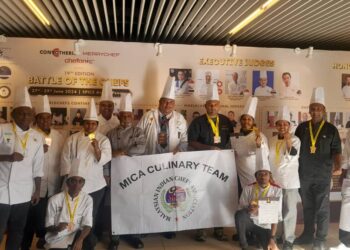-KH News Desk (cbedit@imaws.org)
With 42% of its land preserved amid eucalyptus and other native trees, Pinhal Farm has won the prestigious title of a most sustainable farm in Brazil with O’Coffee coming in second.
Pinhal, a favourite of speciality coffee connoisseurs in the UK, Germany, Finland, Australia, Saudi Arabia and China, took home the award for its unique use of technology and sustainable crop management through wildlife conservation and the reduction of fertilizers and pesticides. Both farms are part of “Brazil. The Coffee Nation”, promoted by BSCA (Brazil Specialty Coffee Association) and ApexBrasil (Brazilian Agency for Trade and Investment Promotion).
The awards were presented in the latest edition by the leading Brazilian national publication Globo Rural Magazine. That’s a big deal because Pinhal and O’Coffee were up against all of Brazil’s agricultural producers in a country where more than 19 million people work in agriculture every day.
Located in Santo Antônio do Amparo in the state of Minas Gerais, Pinhal is run by Pedro Reis and his sister Mariana Reis Teixeira – who are part of the sixth generation of speciality coffee producers in the Teixeira family. Cultivated varieties include Acaiá, Arara, Bourbon, Castilho, Catinguá, Red Catuaí, Yellow and Red Geisha, Icatu, Topázio and Uva.
On-farm sustainability initiatives include the installation of solar panels to generate electricity and a significant reduction in water, fertilizer, pesticide and fuel consumption. Additionally, Pinhal Farm has partnered with several schools to allow students to participate in tree planting on the plantation. The family also provided space for the rehabilitation and release of native wildlife.
“Since we can’t change the world, let’s at least start where we are. Sustainable production is very important so that we can work towards a better climate in the future. Our intention is also to influence the people around us and with whom we come into contact. Sustainability is an ongoing development and it is important to build momentum and hopefully inspire others to follow suit,” said Pedro Reis, who manages day-to-day operations from Pinhal. Sustainable practices are also a priority at O’Coffee, based in Pedregulho, São Paulo, Brazil. The fast-growing farm makes its compost, coffee powder, and water from bean processing. O’Coffee also cultivates native plant species to neutralize carbon emissions. Technologies include the use of telemetry to circle the fleet of tractors, which precisely apply every drop of water, taking into account weather conditions and soil moisture.
“We work with people, and best practices emerge from their way of thinking and acting. This contributes to what we call a balanced carbon balance, where we make the most of best practices to reduce carbon emissions, while forest areas and coffee plants work to neutralize carbon dioxide,” said Union Terra, executive director of O’ Coffee.
O’Coffee was founded in 1940 and currently exports to around 20 countries such as the USA, UK, Switzerland, Belgium, Norway, Greece, Australia, Canada, South Korea, Japan, Russia, Taiwan, Kuwait and Argentina. Among the varieties produced are Acaia, Bourbon Giallo, Catuai Giallo and Rosso, Catucai, Mundo Novo, Icatu and Arara.







